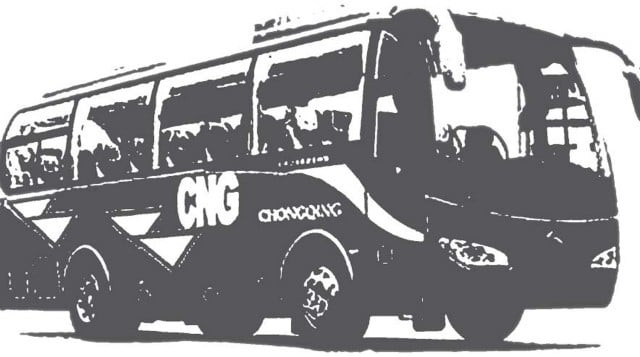Punjab government launches crackdown against use of substandard gas kits
All DCOs to monitor check and seal public transport vehicles using substandard gas cylinders.

The District Coordination Officers (DCOs) were assigned the duty of monitoring a check on all public transport and were ordered to immediately unplug substandard CNG kits and cylinders from the vehicles on finding them being used.
Sources familiar with the matter told The Express Tribune that these instructions were given by Punjab Chief Minister Shahbaz Sharif to avoid any further incidents of gas explosions in the future.
The Punjab government has also been planning to completely ban the use of CNG cylinders in public transport or put a compulsory check before installation.
According to sources, more than 200 public transport vehicles in Multan, Khanewal and Dera Ghazi Khan were completely sealed and their gas cylinders were removed after they were found using substandard gas kits.
The local officials have been asked to cooperate with the police in helping them to maintain the law and order situation of the province.
DCO Khanewal Rashid Mehmood told The Express Tribune that all vehicles of public transport were put under a detailed examination system and after scrutiny, the ones with poor quality installations have been stopped from plying.
“The check is not meant to disturb transporters as we are aware of their reservations, but it is to ensure the safety of the passengers,” said DCO Dera Ghazi Khan Iftikhar Ali Sahu while saying that the police have also been dealing with the problems of local transporters.
All vehicles have been handed back to their owners with intimation about precautionary measures.
The citizens and passengers have appreciated the step taken by the Punjab government and have demanded that the team examining the CNG cylinders should maintain the complete quality control level.
The Regional Transport Authority (RTA) secretaries of each district have been made in-charge of the operations in their respective districts on the instructions of the DCOs.
The passengers say that even though people are facing problems because of the checking system, especially those who have to travel to rural areas, but this step was necessary.
The Punjab government also planned to launch the cleaning for all other vehicles to ensure the safety of the people, according to some senior officials.
RTA Dera Ghazi Khan secretary Mehar Azizur Rehman said that the local transport authorities have also planned to offer a free quality check of CNG kits and cylinders in all districts of Punjab.
District Transport Officer Multan Amjad Shoaib Tareen said that transporters associations are organising protests in different parts of the province against the Punjab government but local authorities have assured that vehicles only with lethal quality were sealed and they will be returned after these cylinders are removed from them.
Correction: An earlier version of the story mentioned District Transport Officer Multan Shoaib Tareen as DCO. The error is regretted.



















COMMENTS
Comments are moderated and generally will be posted if they are on-topic and not abusive.
For more information, please see our Comments FAQ